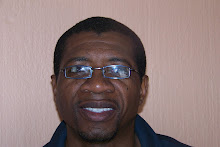Sunday, June 14, 2015
Fanon On Decolonisation
Decolonisation entails the reappropriation and return of national territory to its original indigenous people and freedom from (an) oppressive regime. Without decolonisation in the form of land reparations, reconciliation is impossible
Saturday, January 17, 2015
Fanon on post colonial Africa
The national bourgeoisie steps into the shoes of the European....It discovers its historic mission as an intermediary....to serve as a conveyor belt for a capitalism forced to camouflage itself....The national bourgeoisie with no misgivings and with great pride revels in the role of business agents in its dealings with the Western bourgeoisie....The dynamic, pioneering aspect, the inventor and discoverer of the worlds is here absent....This bourgeoisie, which has unreservedly and enthusiatically, adopted the intellectual reflexes that characterise the metropole, which has marvelously alienated its own thought and grounded its consciousness on typically foreign bases (Frantz Fanon)
Thursday, January 1, 2015
The problem with education in South Africa
THE PROBLEM WITH THE SOUTH AFRICAN EDUCATION SYSTEM
Amongst the vexing challenges facing
South Africa today is the high rate of unemployment, that is currently at 25.2%.
High levels of unemployment have persisted in South Africa even during the period
1994 to 2007 when GDP growth was relatively boisterous, picking at 5.6% in 2007[1].
What explains the economy’s failure to create jobs even in times of relative
prosperity (jobless growth) is that unemployment in South Africa is structural,
and is largely caused by low levels of skills in an economy that demands intermediate
to high-level skills. The challenge is therefore not that the economy is
failing to create jobs, but that the majority of those that are unemployed do
not possess the right skills to take advantage of available opportunities.
At the heart of this is an education
and training system that fails to adequately prepare young people either for
higher education and/or employment. Of the 439 779 matriculants that graduated
in 2013, only 30.6% obtained University entrance[2].
A shocking 46% of South African students dropout of University in their first
year[3].
Almost half of the pupils who should have written matric in 2013 had dropped
out of the system at the end of grade 10. These are just some of the indicators
of a poor schooling system that has consistently underperformed its peers on
the Southern and Eastern Africa Consortium for Measuring Education Quality
(SAQMED).
Subscribe to:
Comments (Atom)
